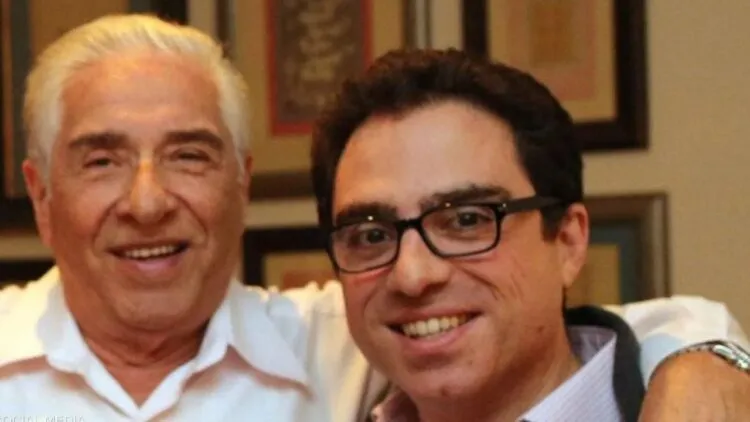Baqer Namazi and his son Siamak in the archive (social networking sites)
Sources in Iran predict the release of $7 billion.
On Sunday, the United States refuted Iranian accusations that the release of two Americans held in Tehran will result in the transfer of Iranian funds to foreign countries.
After seven years of being barred from doing so, the 85-year-old Iranian-American Baqer Namazi was permitted to leave Iran, and his son Siamak was freed. On Sunday, the Iranian official media reported that Tehran now anticipates releasing its outstanding assets abroad following “the end of negotiations with the United States” about prisoners.
Furthermore, according to the official Iranian news agency IRNA, the action against Namazi and his son was related to the release for Iran of frozen financial assets in South Korea.
According to unnamed “informed sources,” a prisoner exchange agreement between Iran and the United States would result in the impending release of $7 billion in blocked Iranian assets in South Korea.
”
She said, “Intensive discussions for the simultaneous release of prisoners between Iran and America and billions of dollars in Iranian assets were witnessed over the course of the last weeks, mediated by one of the countries in the region.
However, the US State Department denied any such connection existed, claiming that this was “completely incorrect
“Despite numerous demands for urgent medical attention, Baqer Namazi was wrongfully jailed in Iran, served his sentence, and was then denied permission to leave the country, a foreign ministry spokeswoman said.
“We know that his medical needs are tied to the lifting of the travel ban and the release of his son,” he continued.
Due to the sanctions that former US President Donald Trump re-imposed on Iran as of 2018, his nation’s unilateral withdrawal from the international agreement on Tehran’s nuclear programme reached in 2015 resulted in the freezing of tens of billions of dollars.
Tehran claimed that Seoul had “held hostage” its assets until January 2021, despite the fact that both parties have consistently said in recent months that they are in talks to find a solution to release these assets.
Washington contests Tehran’s claim that it freed two Americans in return for the return of Iranian assets.

